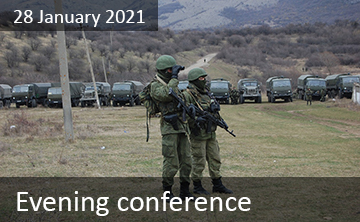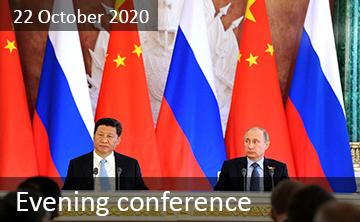
Countering
“Hybrid Threats”:
Belgium and the
Euro-Atlantic Strategy
The practices of “hybrid warfare” are seen as a major security challenge by the EU and NATO, wich have been working both separately and cooperatively since 2015 to develop a coherent strategy in the fight against “hybrid campaigns” with the purpose of helping Member States counter this complex threat. The notions of “hybrid threats”, or “hybrid warfare” as favored by NATO, are not unanimously supported nor univocally understood by either organization nor, for that matter, within either institution. Even though Belgium has to this day not developed a centralized approach to “hybrid threats”, it has addressed the problem through the bias of several bodies responsible for coordinating the country’s security policy, no matter the estimated threat level, whether “hybrid” or not. In his latest “Strategic Vision for Defense” issued in June 2016, the Belgian Defense Minister has himself acknowledged the importance of “hybrid warfare”.
This study is in two parts. The first part will consider the origins and development of the “hybrid warfare” concept, particularly within the EU and NATO. The second part will explore the various strategies implemented by both organizations as well as Belgium’s involvement in the fight against hybrid threats.
Download the Security & Strategy 131 in English
Les pratiques de la « guerre hybride » sont considérées comme un défi sécuritaire majeur par l’UE et l’OTAN, qui s’attellent depuis 2015 à développer, chacune de leur côté mais en coopérant, une stratégie cohérente dans la lutte contre les « campagnes hybrides », afin d’aider les pays membres à contrer cette menace complexe. La notion de « menaces hybrides » et celle de « guerre hybride », préférée par l’OTAN ne font cependant pas l’unanimité et ne semblent pas toujours signifier la même chose, selon l’organisation et parfois même au sein d’une même institution. À ce jour, il n’existe pas de politique belge centralisée en ce qui concerne la lutte contre les « menaces hybrides ». La Belgique dispose néanmoins de différents organismes chargés de coordonner la politique sécuritaire du pays, quel que soit le degré de la menace, qu’elle soit « hybride » ou non. Dans sa dernière « vision stratégique pour la défense » de juin 2016, le ministre belge de la Défense reconnaît également l’importance de la problématique de la « guerre hybride ».
La présente étude comporte deux parties. La première a pour but de mieux discerner comment est né et a évolué le concept de « guerre hybride », singulièrement au sein de l’UE et à l’OTAN. La seconde partie analyse la stratégie mise en place par les deux organisations pour lutter contre les menaces hybrides mais également les mesures prises par la Belgique pour participer à cette stratégie.
Download the Security & Strategy 131 in French
Research lines: Threats, challenges and strategic responses ; Belgium



